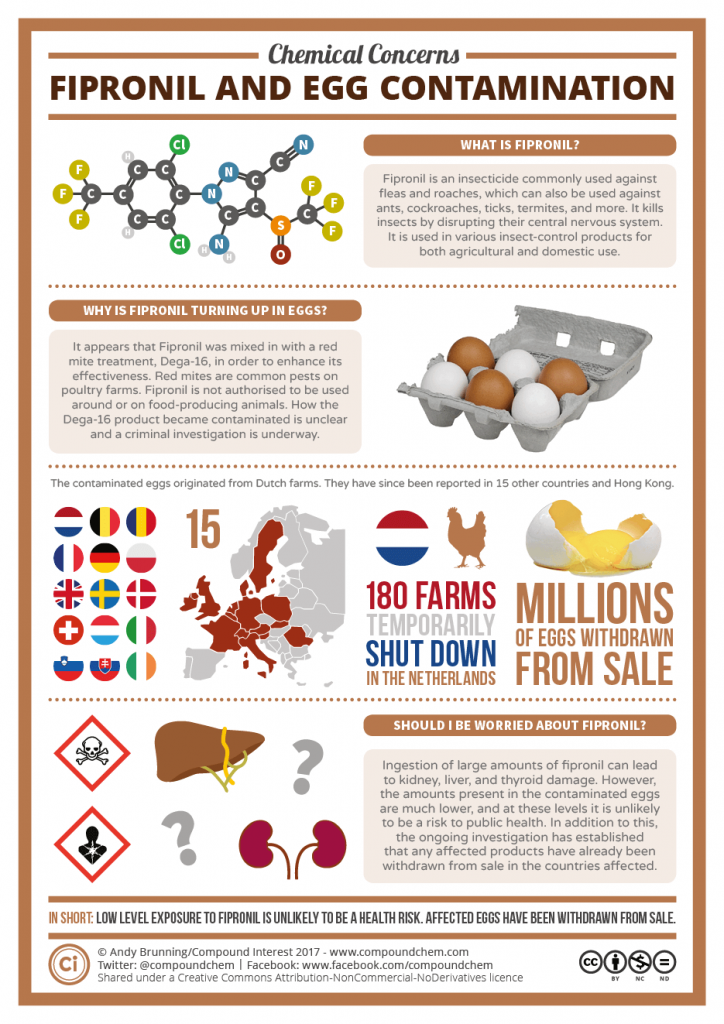In a risk communication fiasco reminiscent of the 1999 dioxin-in-chicken-feed scandal in the EU, millions of eggs have been pulled from supermarket shelves across Europe after contamination with a banned insecticide.
 On July 19, 2017, the government of Belgium said that fipronil had been found in eggs produced there, one month after the fipronil was actually detected. The contamination is thought to have been caused by the mixing of the insecticide with a cleaning agent used at chicken farms to control blood lice.
On July 19, 2017, the government of Belgium said that fipronil had been found in eggs produced there, one month after the fipronil was actually detected. The contamination is thought to have been caused by the mixing of the insecticide with a cleaning agent used at chicken farms to control blood lice.
Dutch health authorities admitted that they had received a tip about fipronil being used in barns against blood lice as early as November 2016.
After initially poo-pooing the threat, things picked up in early Aug. as more countries found eggs with fipronil, and more supermarkets pulled eggs.
Dutch police arrested two individuals they say could be accountable for allowing the insecticide Fipronil to be used inside Dutch poultry farms.
A joint Dutch-Belgian task force conducted raids at eight poultry farms in the Netherlands, according to the Dutch prosecution service.
The investigation “focused on the Dutch company that allegedly used Fipronil, a Belgian supplier as well as a Dutch company that colluded with the Belgian supplier,” according to the prosecutor.
 Heather Hancock, chairman of the UK Food Standards Agency said: “Our advice remains clear – there’s no need to change how you buy or consume eggs. We are responding very quickly to any new information, to ensure that any products left that contain egg from the affected farms is withdrawn immediately. We’re doing this because Fipronil is not authorised for use in food producing animals, not because we are concerned about any risk to health.”
Heather Hancock, chairman of the UK Food Standards Agency said: “Our advice remains clear – there’s no need to change how you buy or consume eggs. We are responding very quickly to any new information, to ensure that any products left that contain egg from the affected farms is withdrawn immediately. We’re doing this because Fipronil is not authorised for use in food producing animals, not because we are concerned about any risk to health.”
No risk messages are risky.
So is commercial exploitation.
Robert Chapman, who packs four million eggs a week under the Farmlay label from his West Cockmuir farm at Strichen, Aberdeenshire, urged buyers to learn a lesson from the incident, adding, “Price is obviously a major factor why so many imported eggs come into Britain, but the fact that so many have been found to be contaminated is a major issue. Surely processors and retailers will take this on board and source more eggs from UK producers whose standards are second to none.”
British Free Range Egg Producers Association chief executive Robert Gooch said, “British egg producers follow stringent production standards to ensure that what they produce is perfectly safe and nutritious for consumers to eat.”
Until it isn’t.

